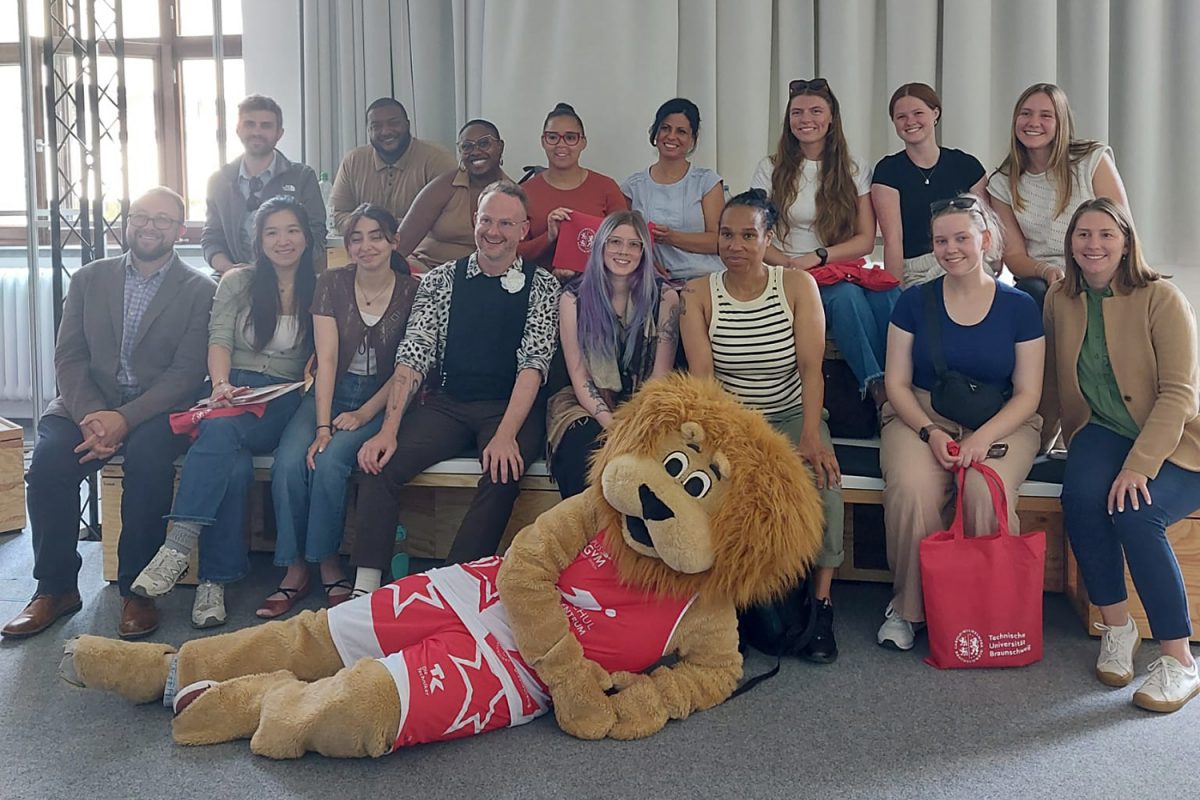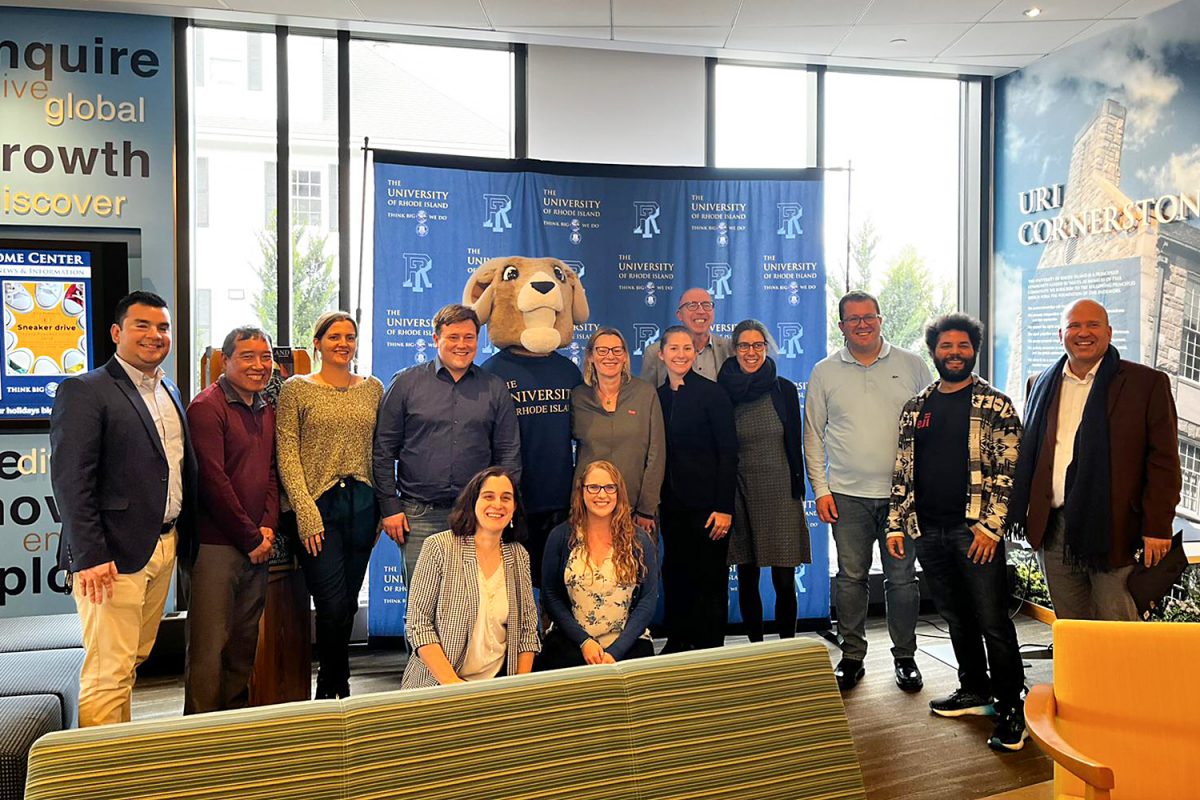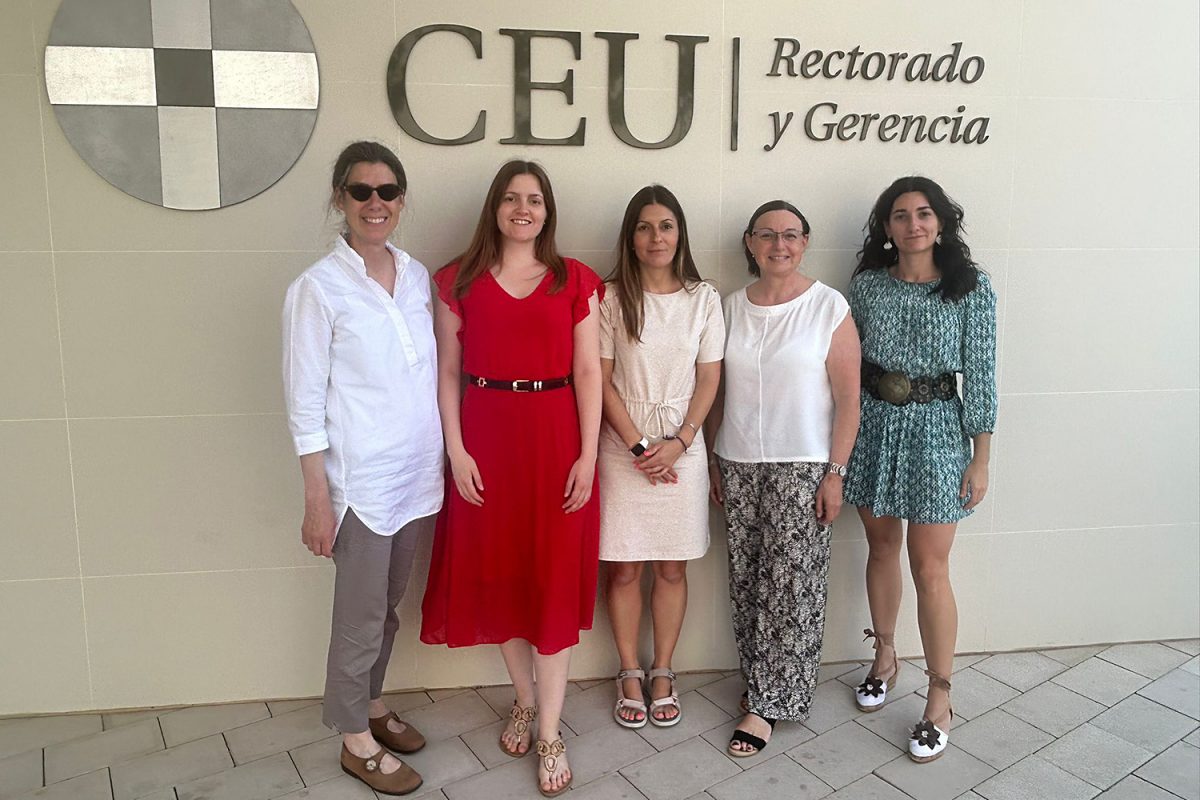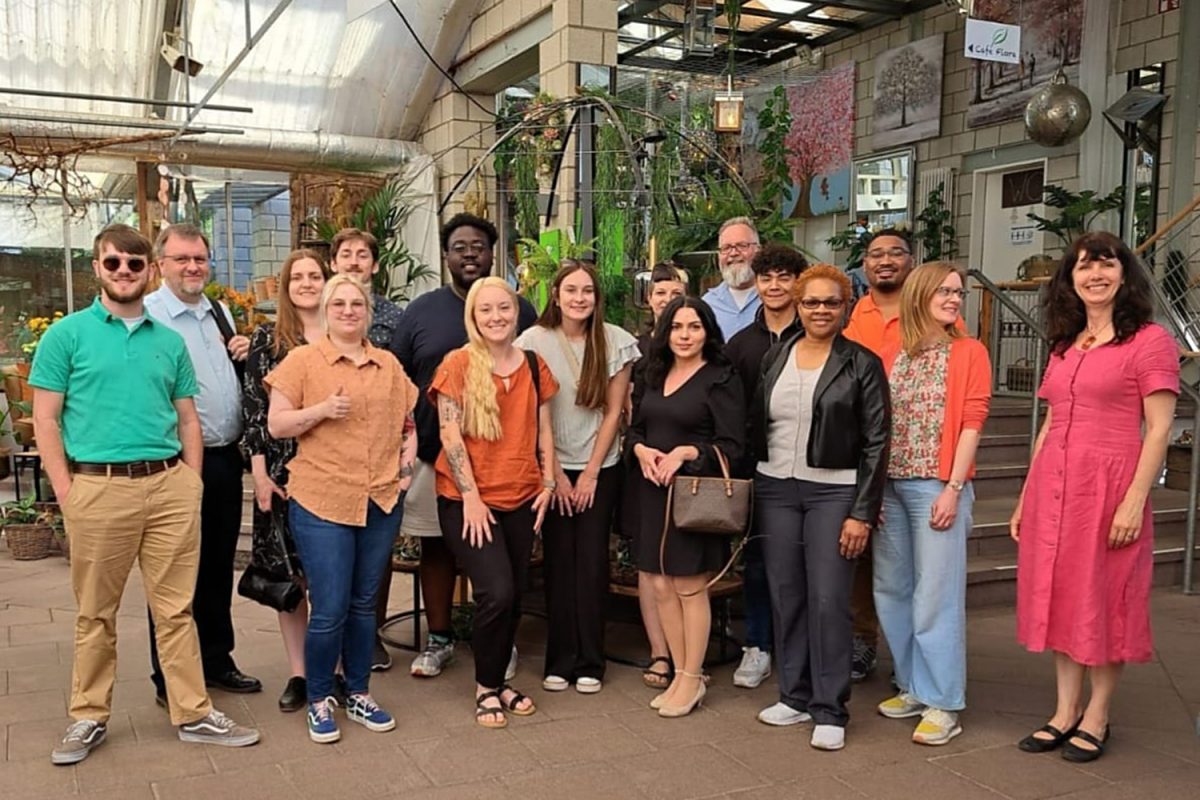TU Braunschweig promotes international teacher training Go out – Come in 2.0: New exchange formats for international experience
Dealing with cultural differences, teaching global perspectives and the ability to respond to the needs of diverse student populations are key challenges facing teachers. The DAAD-funded project ‘Go out – Come in 2.0: Hybrid Shared Experiences’ at Technische Universität Braunschweig addresses precisely these issues. In close cooperation with international partner universities, the programme enables the next generation of teachers to gain practical experience abroad.
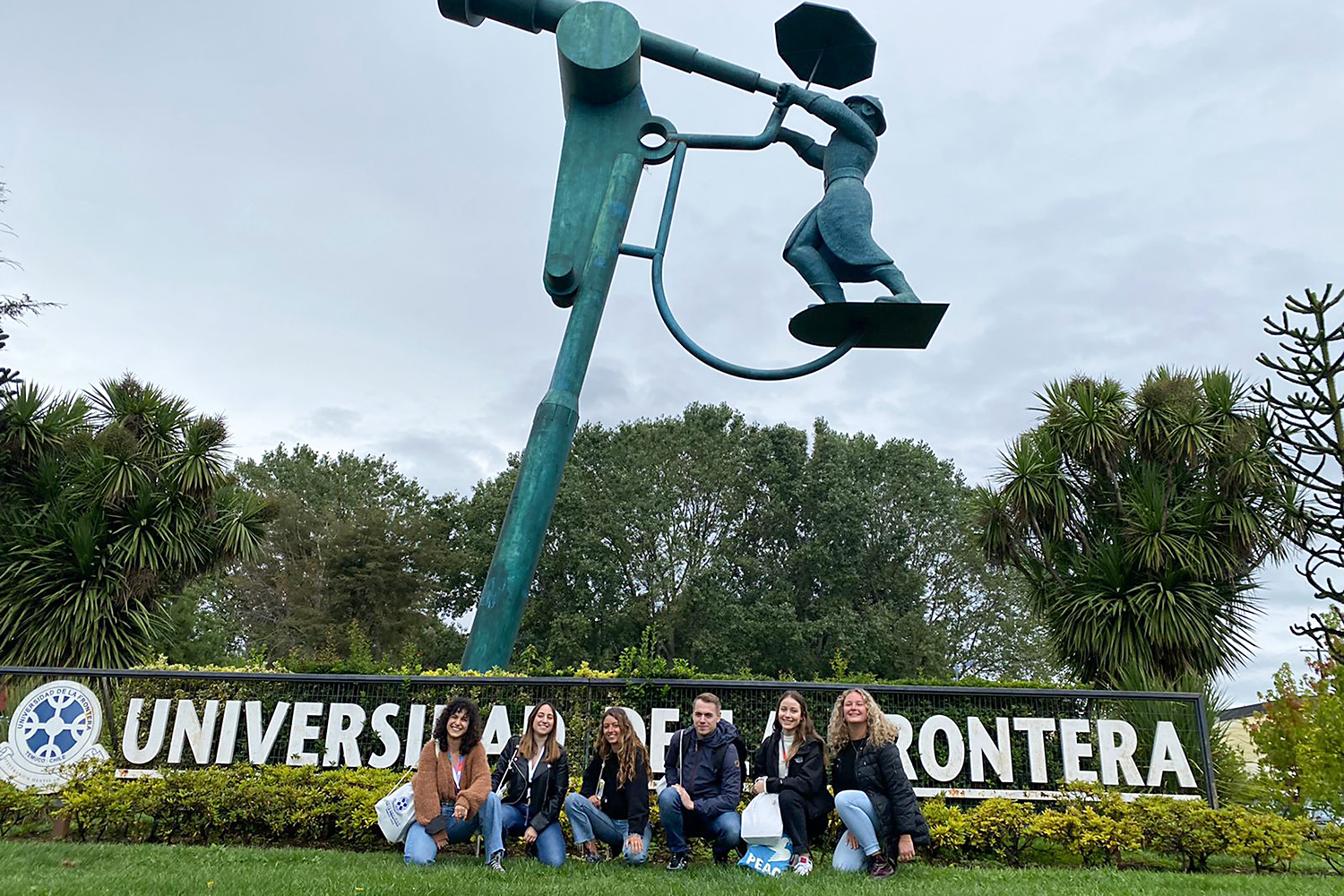
Simon Beike (third from right) and Hannah Boog (first from right), scholarship recipients from the first funding phase, with other international students at the Universidad de La Frontera. Photo credits: TU Braunschweig
The aim of ‘Go out – Come in 2.0’ is to consolidate long-term cooperation between TU Braunschweig and international universities. Short-term programmes to establish exchange structures had already proven successful in the first funding phase. This resulted in two exchange programmes with the University of Rhode Island and a so-called Maymester with the University of Tennessee at Martin, both in the USA. These initiatives have combined the expansion of cooperation with offers for ‘internationalisation at home’. The current second funding phase expands the existing structures and creates hybrid exchange formats for teacher training students that closely link study and practice.
International cooperation and hybrid teaching
The partner universities involved in the project are the Universidad de La Frontera in Chile, the Universidad CEU Cardenal Herrera in Spain, and the University of Rhode Island and the University of Tennessee at Martin in the USA. Bilateral and, in the future, multilateral short-term mobility programmes (including school visits) are being developed in close coordination with the curricula of the respective universities.
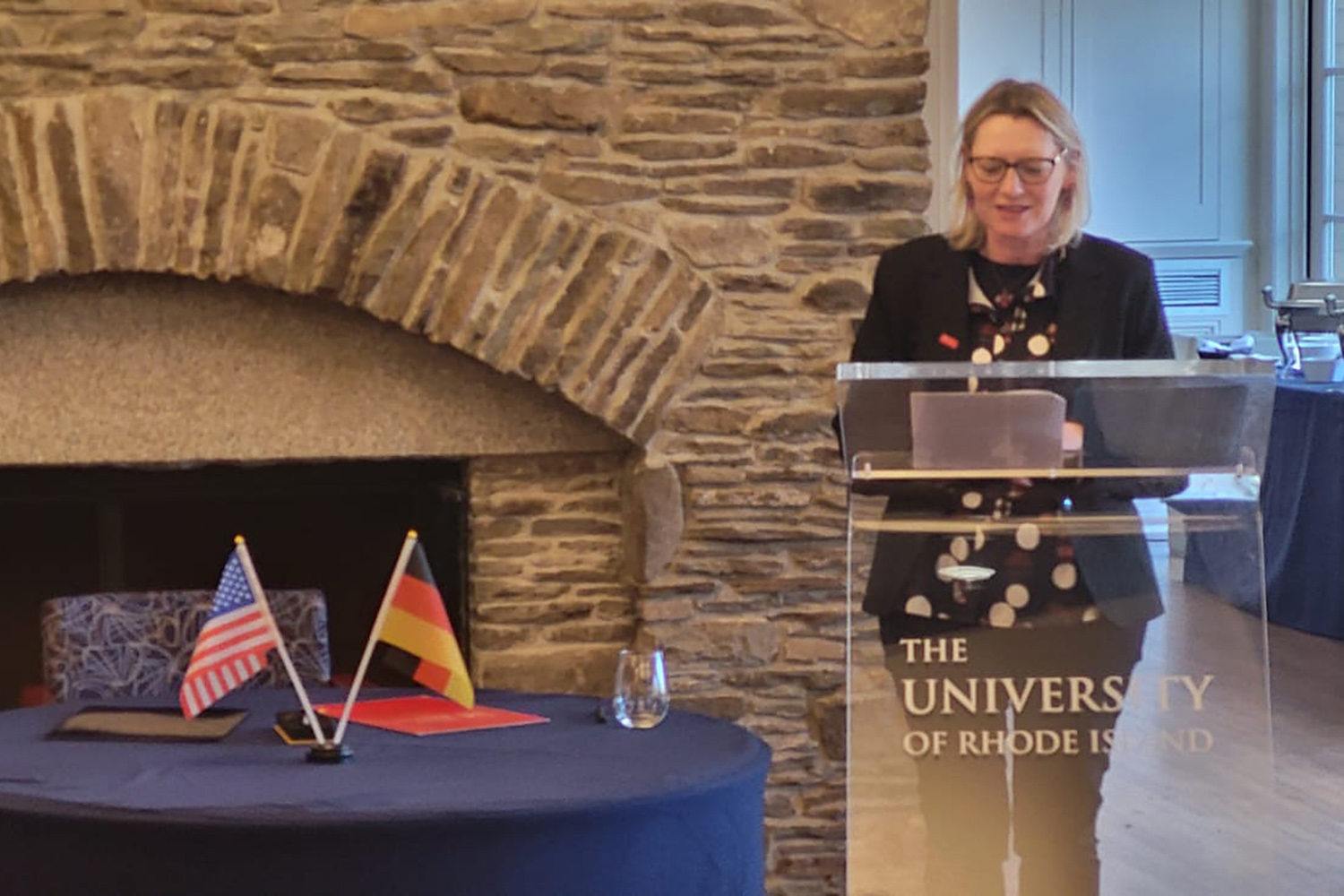
Prof. Katja Koch, Vice President for Teacher Education, during the delegation visit to the University of Rhode Island in 2023. Photo credits: TU Braunschweig
At the beginning of June 2025, the project leaders, Professor Katja Koch, Vice President for Teacher Education, and Professor Rüdiger Heinze from the Institute of English and American Studies, welcomed the first visitors from the University of Rhode Island. At the end of June, a contact visit to the Spanish university took place. A return visit from Spain, a contact trip to Chile and a guest lecture from Tennessee are planned for later in the year.
The concept includes a joint hybrid semester course, school internships and an intercultural framework programme with activities such as cultural festivals and a football match. It is supplemented by a reflection seminar. The focus is on globally relevant issues, including dealing with heterogeneous learning groups. The programme combines online and face-to-face phases. The practical phase comprises two weeks in Germany and three weeks abroad, during which school visits provide valuable insights into different education systems.
Short-term mobility as a springboard for international experience
One of the project’s aims is to make it easier for students who have not yet spent time abroad to gain international experience through short-term mobility programmes. “It could serve as a springboard for a longer stay,” says Alexandra Wolf, project coordinator and research assistant at the Institute of English and American Studies.
In addition to the DAAD project, internationalisation at the Faculty of Humanities and Education is also being promoted by the project ‘Nurturing Global Citizens through Sustainable Education and Future Learning,’ which is funded by SAiL (Strengthening and Expanding International Teaching). Under the direction of Professor Carmen Becker, Dean of Studies and Professor at the Institute of English and American Studies, the English-language, interdisciplinary module package ‘Global Learning’ has been developed since September 2024. It will be offered starting in the winter semester 2025/26 and promotes mutual exchange. “The ‘Global Learning’ module package creates an opportunity for our partner universities, strengthens internationalisation at home and encourages students to plan a stay abroad themselves,” says Wolf.
Hybrid Shared Summerschool
A ‘Hybrid Shared Summer School’ is planned for 2028, bringing together students from all four universities. A total of around 20 students from TU Braunschweig will be able to go abroad through the programme, while five to ten international students from each partner university will be welcomed to TU Braunschweig.
With ‘Go out – Come in 2.0,’ TU Braunschweig is setting another milestone on the path to internationalising teacher training. Hybrid teaching makes it possible to integrate international cooperation into the curriculum in a sustainable manner and open up new avenues of academic and personal development for students.

